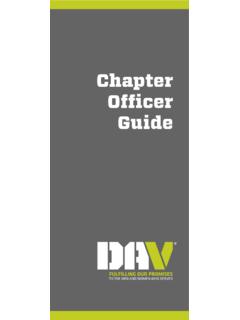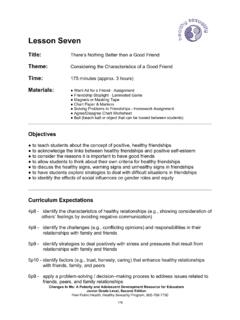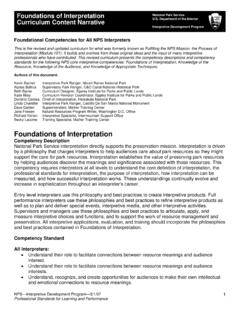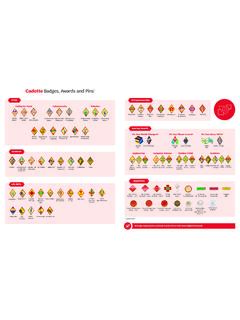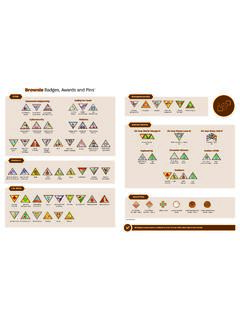Transcription of DFEH Workplace Harassment Guide
1 DFEH Workplace Harassment Guide FOR california EMPLOYERS Page 1 california DEPARTMENT OF FAIR EMPLOYMENT AND HOUSING Workplace Harassment PREVENTION Guide FOR california EMPLOYERS california law (called the Fair Employment and Housing Act or FEHA) prohibits discrimination, Harassment and retaliation. The law also requires that employers take reasonable steps to prevent and correct wrongful (harassing, discriminatory, retaliatory) behavior in the Workplace (Cal. Govt. Code 12940(k)). The Department of Fair Employment and Housing (DFEH) is the state s enforcement agency related to the obligations under the FEHA.
2 california s Fair Employment and Housing Council (FEHC) enacted regulations in 2016 to clarify this obligation to prevent and correct wrongful behavior. This document was produced by the DFEH to provide further guidance to california employers. WHAT DOES AN EFFECTIVE ANTI- Harassment PROGRAM INCLUDE? A clear and easy to understand written policy that is distributed to employees anddiscussed at meetings on a regular basis (for example, every six months). Theregulations list the required components of an anti- Harassment policy at 2 CCR 11023.
3 Buy in from the top. This means that management is a role model of appropriateworkplace behavior, understands the policies, walks the walk and talks the talk. Training for supervisors and managers (two-hour training is mandated under two lawscommonly referred to as AB 1825 and AB 2053, for more information on this seeDFEH training FAQs). Specialized training for complaint handlers (more information on this below). Policies and procedures for responding to and investigating complaints (moreinformation on this below).
4 Prompt, thorough and fair investigations of complaints (see below). Prompt and fair remedial action (see below).DFEH Workplace Harassment Guide FOR california EMPLOYERS Page 2 IF I RECEIVE A REPORT OF Harassment OR OTHER WRONGFUL BEHAVIOR, WHAT SHOULD I DO? You should give it top priority and determine whether the report involves behavior that is serious enough that you need to conduct a formal investigation. If it is not so serious (for example, an employee s discomfort with an offhand compliment), then you might be able to resolve the issue by counseling the individual.
5 However, if there are allegations of conduct that, if true, would violate your rules or expectations, you will need to investigate the matter to make a factual determination about what happened. Once your investigation is complete, you should act based on your factual findings. An investigation involves several steps and you need to consider a variety of issues before you begin your work. The following section will address many of those issues. WHAT ARE THE BASIC STEPS REQUIRED TO CONDUCT A FAIR INVESTIGATION?
6 A phrase that you might see related to investigations is due process. Due process is simply a formal way of saying fairness employers should be fair to all parties during an investigation. From a practical perspective, this means: Conduct a thorough interview with the complaining party, preferably in person. Whenever possible, the investigation should start with this step. Give the accused party a chance to tell his/her side of the story, preferably in person. The accused party is entitled to know the allegations being made against him/her, however it is good investigatory process to reveal the allegations during the interview rather than before the interview takes place.
7 It may not be necessary to disclose the identity of the complaining party in some cases. Due process does not require showing the accused party a written complaint. Rather, it means making the allegations clear and getting a clear response. Relevant witnesses should be interviewed and relevant documents should be reviewed. This does not mean an investigator must interview every witness or document suggested by the complainant or accused party. Rather, the investigator should exercise discretion but interview any witness whose information could impact the findings of the investigation and attempt to gather any documents that could reasonably confirm or undermine the allegations or the response to the allegations.
8 Do other work that might be necessary for you to get all the facts (perhaps you need to visit the work site, view videotapes, take pictures, etc.). You should reach a reasonable and fair conclusion based on the information you collected, reviewed and analyzed during the investigation. DFEH Workplace Harassment Guide FOR california EMPLOYERS Page 3 DO I HAVE TO KEEP ALL INFORMATION FROM AN INVESTIGATION CONFIDENTIAL? You need to look at confidentiality from two sides the investigator s and the employees.
9 The first question is how confidential the investigator (internal or external) will keep the information obtained; the second is whether an employer can require that employees keep information confidential. Can the investigator keep the complaint confidential? The short answer is no. Employers can only promise limited confidentiality that the information will be limited to those who need to know. An investigator cannot promise complete confidentiality because it may be necessary to disclose information obtained during the investigation in order to complete the investigation and take appropriate action.
10 It is not possible to promise that a complaint can be kept entirely confidential for several reasons: 1. If the complaint is of potential violation of law or policy, the employer will need to investigate, and in the process of investigating it is likely that people will know or assume details about the allegations, including the identity of the person who complained. This is true even when the name of the complainant is kept confidential since allegations are often clear enough for people to figure out who complained about what.



